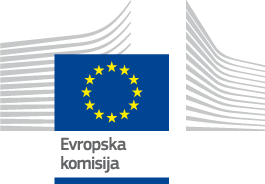

For more than 25 years, the Association des Ligneurs de la Pointe de Bretagne has been working to support professional line and longline fishers, mainly by implementing a labelling system for the species caught in this way. Line fishing is an ultra-selective fishing technique that respects the marine environment and brings environmental sustainability, high quality and a particular socio-economic model to the product. It also targets species that face less consumer demand, such as conger eel and gurnard. Unfortunately, for a number of years the line-fishing fleet has been suffering from falling fish stocks of certain, more popular species and low consumer awareness of the qualities of its products. Competition from cheaper but less sustainable products makes it essential to communicate the advantages of line-caught fish effectively, and to encourage a consumer shift towards less popular species.
This cooperation project aimed to improve line fishing’s image among consumers in the Brest and Cornouaille areas, to consolidate and increase the attractiveness of line-caught fish and to promote the consumption of lesser-known species. Additionally, this project is a pillar in their Local Development Strategies to keep the technique of line fishing alive.
The project enabled line fishers to take part in festivals such as “Cornouaille gourmand” and to cooperate with other associations such as “Aux goûts du jour”, thus creating a network to highlight local production and increase public awareness of line-caught fish.
A communication campaign on less-consumed line-caught fish species was also financed, using social media, press and TV (it included an appearance on the TV show "La Quotidienne"). The project included the design and production of communication products such as flyers, information panels, stickers, postcards and even a card game. A promotional film on line fishing activities and products was made to highlight the techniques used, the products, and the Brest and Cornouaille area. The project also financed the redesign of the association's website..
Moreover, some 50 half-day events were held in local primary schools to present line fishing activities: the pupils reconstructed a longline and played with puzzles explaining the food chain.
This project aims to be replicable at national level, and to involve all professional line fishers (whether or not members of the Association) in the various stages of the project: validation of the communication plan, creation of an audio-visual identity, participation in events, communication to students and promotion of lesser-known species. However, to be successfully transferable, the project would need to be adapted to the local seafood resources and to the consumers targeted.
Lessons: For a project like this to be a success, you need to invest in human relations and ensure that you have the right contacts from the beginning, so that you can implement the overall communication plan effectively.
Contribution to CLLD objective: (a) adding value, creating jobs, attracting young people and promoting innovation at all stages of the supply chain of fishery and aquaculture products;
| Country | |
|---|---|
| Theme |